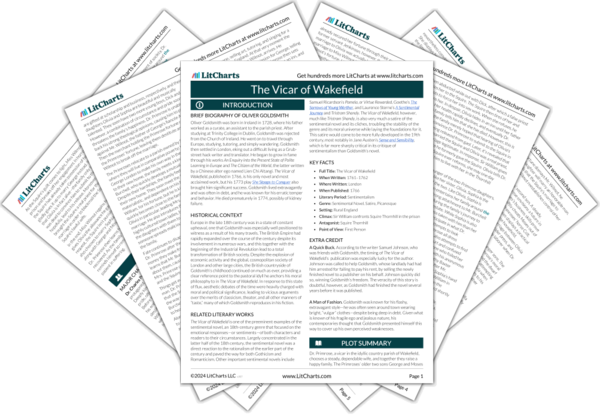The stunning reveal that George is the actor playing Horatio completes one cycle of redemption and begins another. The kindness and sociability Dr. Primrose showed to the actors pays off; had he dismissed them as socially beneath him, he may never have found his son again. George and Miss Wilmot’s happy reunion, on the other, seems to suggest that the Primrose family can repair the broken bonds between themselves and Wakefield.
